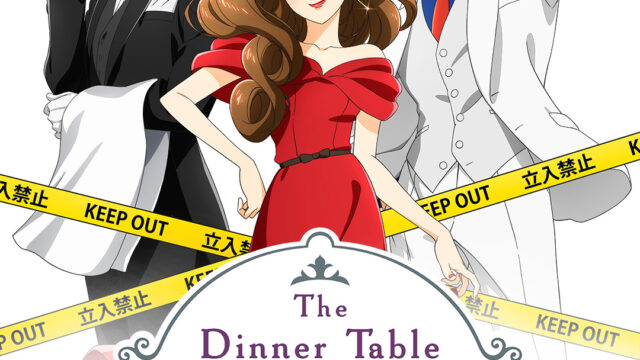Review: Tuca & Bertie “Salad Days”
Overview:
It’s the most beautiful time of the year–Yeast Week–and Bertie finds herself lost in toxic thoughts rather than delicious pastries. A frustrating face from Bertie’s past tests both her individual growth as well as the strength of her burgeoning relationship under Chef Winter Garcia. This seemingly perfect recipe begins to face unexpected pressures and the danger of going up in flames. While Bertie figures out if she wants to stick her head in an oven for productive or destructive purposes, Tuca is subjected to her own professional problems and finds solace in a Speckle-shaped life preserver.
Our Take:
Tuca and Bertie have bravely tackled this newest season by storm, but a year full of changes is not always analogous to productive progress. To be clear, Bertie and Tuca have made great strides and this season’s take on them presents them at their healthiest. However, that’s not the same as them being healthy. The first-third of season three of Tuca & Bertie has been so full of change for its titular characters that they haven’t had much of a chance to really take stock of where they’re at. On paper, Tuca, Bertie, and Speckle are all in better places than they were last season. “Salad Days” allows these characters to soberly assess their new surroundings and examine where their confidence–or lack thereof–comes from, whether it’s Bertie’s adulation for Chef Winter Garcis, Speckle’s friendship with Tuca, or Ducky and the rest of the massive mallards who are giving Tuca trouble at work.
Bertie unfortunately has a number of sizable triggers, but one of the most prevalent to her progress in life is Pastry Pete. Season two of Tuca & Bertie explored new ground with this character and how he continues to influence Bertie, even when he’s in her rearview mirror. Pastry Pete’s return in “Salad Days” indicates that this character is never going to completely leave the series even if he’s run his course to some extent. It’s frankly powerful that Pastry Pete will stick around as this haunting figure of toxic masculinity that Bertie will never fully be free of even if she’s internally made peace with it. It’s the sad nature of real life. Bertie’s time learning under Pastry Pete in season one now carries an even greater impact after it continues to fester in Bird Town.
What’s most effective about how “Salad Days” returns to Pastry Pete is that Tuca & Bertie shifts its focus over to how this past parasite affects her new relationship with Chef Winter Garcia. Bertie returning to Pastry Pete would be regressive, but it’s completely believable that this tainted figure would instead infect Bertie’s opinion of her new mentor. It’s painful to learn that Pastry Pete continues to hold a vendetta against Bertie and spitefully sabotages her career. Bertie’s emotions get the better of her and for a while it looks like this explosive outburst is going to catch Chef Garcia in its fallout. Tuca & Bertie avoids this temptation and instead soldiers into more emotionally complex material.
There are so many ways that this dynamic between Bertie and Chef Garcia could go, so it’s comforting that “Salad Days” don’t indulge in any black-and-white solution. There are very realistic repercussions here that trigger important feelings in Bertie and Chef Garcia, albeit in contrasting capacities. It’s never easy to meet one’s heroes, or even worse, learn that these idols have flaws. It’s a difficult experience for Bertie, but it’s also important for her to understand that not all idols choose to be idolized. At the end of the day, they’re just people–er, birds.
“Salad Days” excels through how it presents the nuance of this complex argument, in which Bertie and Chef Winter Garcia both make valid points. It feels appropriate when these characters admit their faults and that the scope of their fight is grander than them both. It’s heartbreaking to watch the typically timid Bertie find the courage to candidly speak her mind with her role model, only for it to jeopardize her career. It’s a painful conversation that Bertie doesn’t want to have, but she’d arguably feel worse if she repressed these feelings and didn’t do anything about this. The Bertie from season one of this show wouldn’t have spoken up to Garcia, which is definitely progress for her character. It’s equally fascinating to consider how the Bertie from season four or five might act in the same scenario.
“Salad Days” is another compelling mix of emotions and extremes. There’s a cute musical riff that kicks off the entry that I kind of wish was present for the entire episode. It’s far from necessary, but the writing in Tuca & Bertie is definitely sharp enough that it would have been up to this challenge (or at the least, just have all of Bertie’s Yeast Week material be musically-inclined). It’s a minor quibble and this is far from an episode that feels like it’s lacking, but it would have been an interesting stylistic challenge for the series to accept as it gets on in its years.
“Salad Days” is a satisfying extension of the many themes and ideas that have occupied Tuca and Bertie over the first-half of this season. When presented with old trauma and temptations, it’s comforting that these birds can soar to new heights and not get stuck on the same flawed flight path. Tuca and Bertie still have a lot to confront about themselves before this season is over, but at least they’re able to make it through Yeast Week with smile on their beaks.
And remember, just say no to Jammy Beans, y’all.
























"There are also other characters that come and go (also owned by the Warner Bros. Discovery conglomerate media company)."
Huh. Is that just referring to other characters from the show itself, or is this implying that the new season is going to have cameos from other WBD IPs